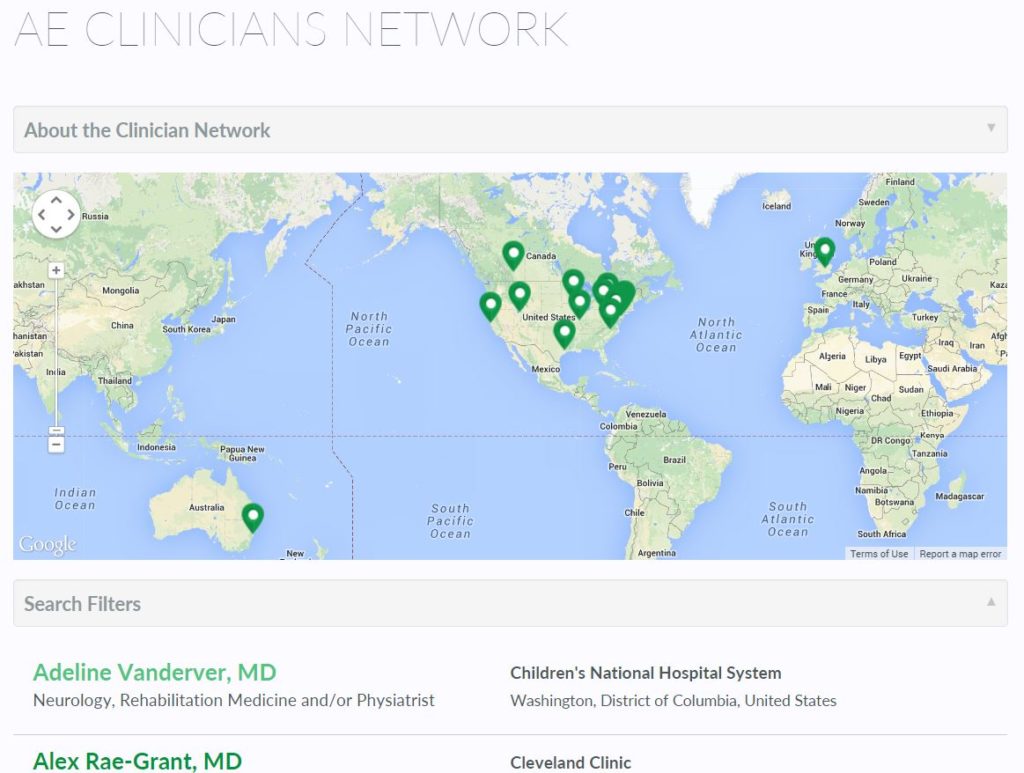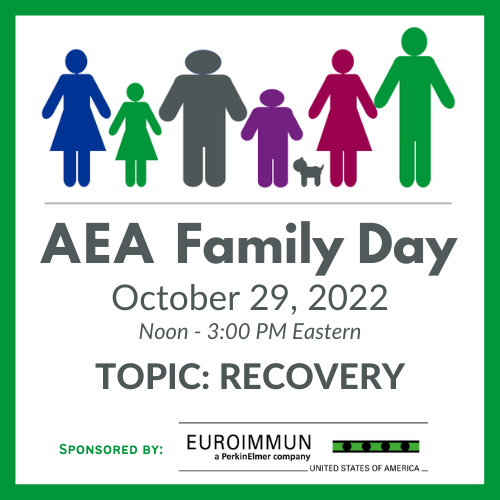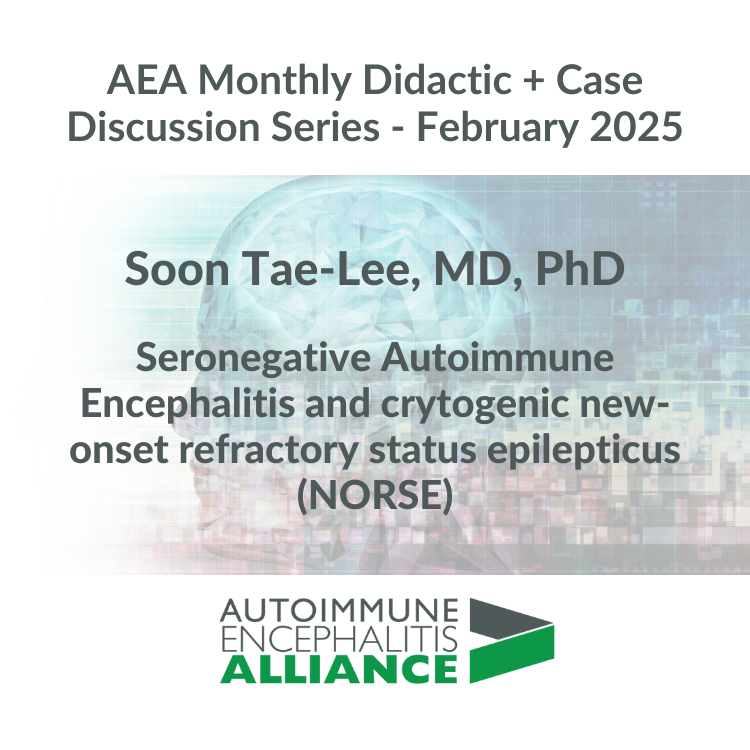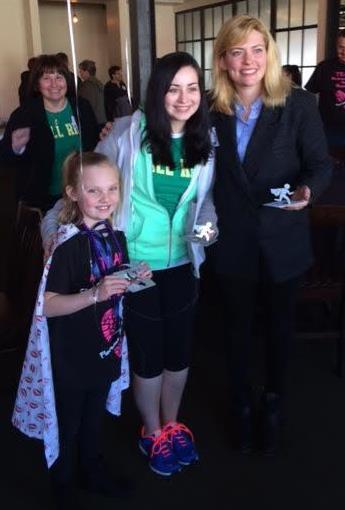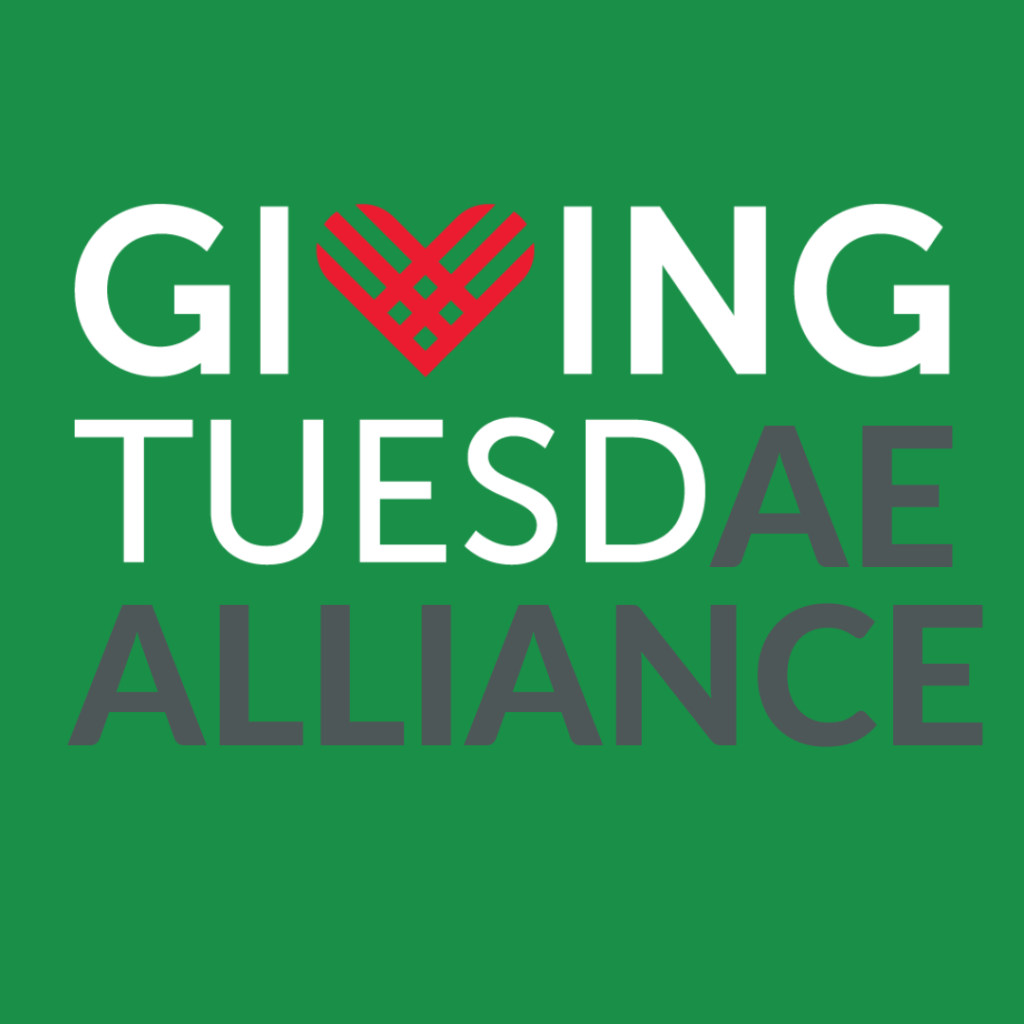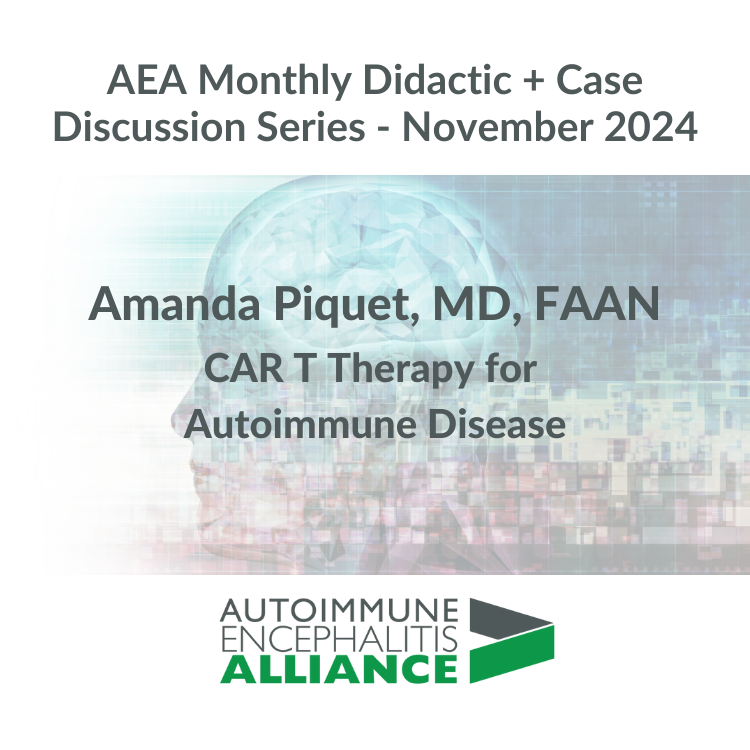Education
After my daughter became sick at the age of two-and-a-half, my husband and I began a quest to find a doctor who could identify what was ailing her and treat her. Six years and 20 doctors in four states later, we were told she had autoimmune encephalitis (AE). The AE Alliance wants to make stories […]
Every month the Transverse Myelitis Association holds a podcast on a topic that affects those with rare neuro-immune disorders. Experts in the field share the latest knowledge and answer questions from their community. On Thursday January 17th the podcast will cover Autoimmune Encephalitis and other rare autoimmune disorders. The Experts for this session are Dr. Michael Bradshaw […]
Mark your calendar! The World Encephalitis Day Alliance will be hosting the World Encephalitis Day Conference on Saturday February 20th, 2021. This will be a virtual conference, so anyone, anywhere can participate. We are literally taking you across the globe, with speakers from Australia, Europe, and the United States. Our Keynote Speakers are Prof. Tom […]
We are excited to announce the Fall AEA Family Day (mini). Instead of a single, full-day, AEA Family Day, the AE Alliance and our program sponsor, EUROIMMUN offer several mini-days throughout the year. This gives us the opportunity to respond to topics that are important to you throughout the year. The Fall AEA Family Day […]
We look forward to Dr. Soon-Tae Lee joining our February 2025 AEA Provider Monthly Education Series and presenting Seronegative Autoimmune Encephalitis and crytogenic new-onset refractory status epilepticus (NORSE). This session is scheduled for February 11 at 7:00 PM Eastern US Time and offered via Zoom. Members of the AEA Medical Advisory Board and Clinicians Network […]
If you are reading this you already know that autoimmune encephalitis can be an isolating experience. That’s one reason the Autoimmune Encephalitis Alliance organizes and hosts the AE Family Lunch in association with the Florence Forth run-walk in Durham, NC. This year the AE Family Lunch will take place on March 5, 2016. All AE patients and families […]
I am an autoimmune neurologist at the Icahn School of Medicine at Mount Sinai in New York City who cares for children and adults with encephalitis. My interest in this field stems from the first patient I saw on my first day of neurology training. He was a three-year-old boy who presented with changes in […]
We had the pleasure of having psychiatrist Stephen Rush, MD discuss the role of psychiatry in AE at our recent Midwest Support Group meeting. Dr. Rush is an Associate professor of Psychiatry and the Medical Director of Ambulatory Services at the University of Cincinnati Department of Psychiatry and Behavioral Neuroscience. In his practice he not […]
What Do You Know about Giving Tuesday and the AE Alliance? As Director of the AE Alliance, I first learned about autoimmune encephalitis and the Alliance three years ago and it was not until three months ago I began learning about GivingTuesday. Both organizations are doing good. Here’s a bit more detail about their histories, […]
Many thanks to Dr. Amanda Piquet, Board of Directors & Medical Advisory Board Member, Autoimmune Encephalitis Alliance for speaking at our November 2024 AEA Provider Monthly Education Series and presenting CAR T Therapy for Autoimmune Disease. We discussed the background of the CAR T therapy and its more recent use in autoimmune disease. We also discussed current examples […]
